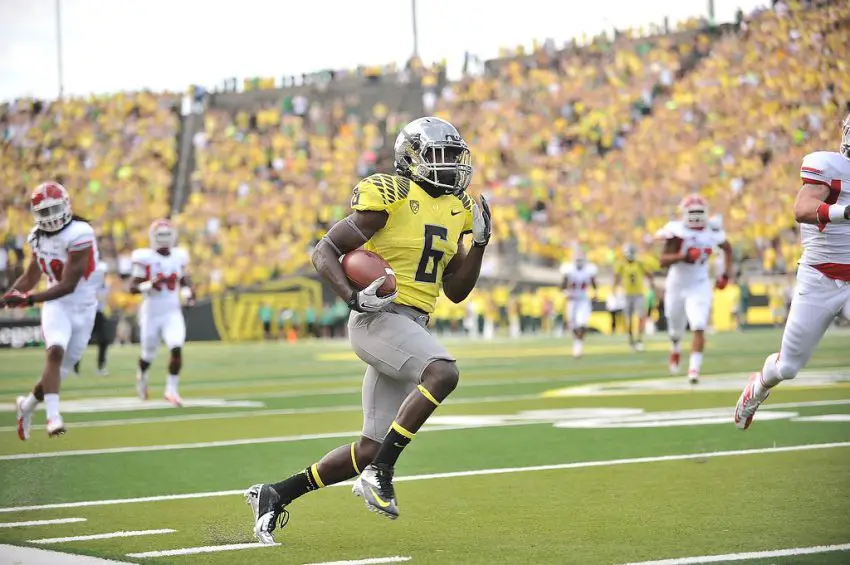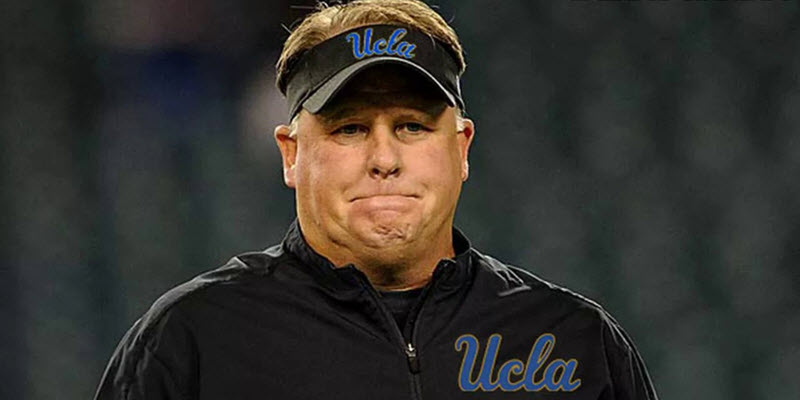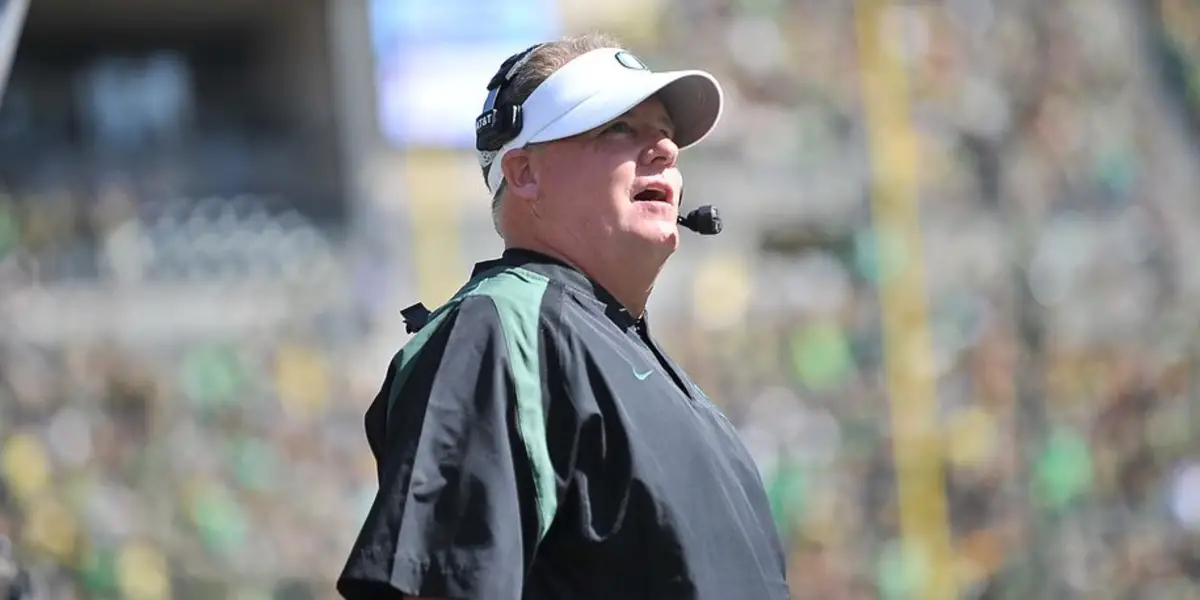Blur. No huddle. Hurry-up. These were the defining characteristics of Chip Kelly’s hyper-exciting offense. But was that the whole story?
Kelly perfected a strategy that forced lumbering defenders to make split-second decisions in space, play after play, with little or no rest intervals. That much is clear. But what made his offense revolutionary was its relative simplicity, transferring a “shell game” or a “which hand holds the marble” contest to the football field. This simplicity was Chip’s defining strength.
Offensive Attack
Sure, you might guess correctly for several downs, but the law of averages dictated that you’d soon be caught out of position, and guys like LaMichael James, De’Anthony Thomas and Kenjon Barner would make a house call. And with his habit of going for it on fourth down, football’s “Coach K” neatly tweaked the numbers game, tilting the odds even further in his favor. Other coaches were played for suckers.

De’Anthony Thomas
But Kelly’s base play, the zone read, had another critical facet: mistakes were few (unlike the pitch option). In fact, near perfect coordination of mesh points and blocking execution was achieved through mutually supportive fast and relentless repetition. Chip’s teams did not beat themselves with errors. An added bonus: quick scores meant the offense would be fresh, especially into the fourth quarter. Opposing defenses, on the other hand, inevitably would become exhausted, allowing the Duck passing game to exploit linebacker, cornerback and safety fatigue.
Fatal Flaws
Unfortunately, when running into a defense that could spend weeks planning for it, the repetitiveness of the scheme could become a liability:
“Other teams have collapsed (Tennessee’s second-half melt-down), so Auburn will be no different.”
It was a very close contest, but during that 2011 National Championship versus Auburn, how many were throwing popcorn at the screen as, again and again, Oregon ran the same play into a brick wall named Nick Fairley? This wasn’t a failure of the system, as the continued success in following years proved. Rather, it exposed its chief protagonist’s tragic, fatal flaw: Chip’s stubbornness combined with a massive helping of hubris.
Gauging Kelly
Today, because of Chip’s NFL misadventures and his arguable weakness in recruiting, many have discounted his chances at UCLA, forgetting how competitive his team was against the 2018 Ducks (for several quarters), or how they fared against Stanford in the season’s swan song. Does anyone seriously doubt his superior college football intelligence?

Chip Kelly with UCLA
Outside of Chris Petersen at Washington and perhaps Mario Cristobal in Eugene, would anyone reading this prefer any other head coach in the Pac-12? I’d be surprised if Kelly hasn’t looked at his past errors and striven to address them. And I’d be amazed if his “old” schemes didn’t find success, very soon.
Largely because of his extreme “chippiness” towards those below him, I never liked the guy. But I have never doubted that Chubby Chip was a winner, or that his teams not only would dominate, but that they would terrifically entertain while doing so. Dislike the guy, admire his smarts, love his teams … and never underestimate him!
Jayme Vasconcellos
Eugene, Oregon Top Photo by Kevin Cline
 Spencer Thomas, the FishDuck.com Volunteer Editor for this article, is an attorney for the Social Security Administration in Atlanta, Georgia, and coaches High School Football for Hillgrove HS in Powder Springs, GA.
Spencer Thomas, the FishDuck.com Volunteer Editor for this article, is an attorney for the Social Security Administration in Atlanta, Georgia, and coaches High School Football for Hillgrove HS in Powder Springs, GA.
Jayme Vasconcellos has been a football fanatic since his father took him to his first game, the Minnesota Vikings inaugural regular season opener against the Bears (9/17/’61) in freezing cold Bloomington Stadium (the Vikings won!). Fran Tarkenton, Hugh McElhenny, and Tommy Mason starred for Coach (and former Duck) Norm van Brocklin in his first job after retiring as a star NFL quarterback

